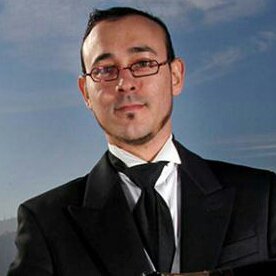
The Modern Butlers’ Journal volume 7, issue 11
International Institute of Modern Butlers
Message from the Chairman
I estimate an individual or family with a net value of twenty million USD or less would be too unhappy with the percentage of that value being used to employ a butler skilled in estate, asset, and personnel management, to feel emboldened to do so.
In these days, therefore, of the diminishing mass affluent and the increasing wealth of the 1% we have been hearing about of late, one question of interest to our profession might be, “Exactly how many individuals or families have it within their financial means to employ us?”
For the only guessed-at number of butlers around the world, the answer is encouraging: 185,000 individuals and families boast (usually discreetly) a net worth of at least 30 million USD (for a total of 25 trillion USD under their control).
63,000 are based in the US, 54,000 in Europe, 42,000 in Asia Pacific, and 15,000 in Latin America—with the Asia Pacific group expected to be the most numerous within two decades. Of these families, over 4,600 are worth 500 million USD and up, and 1,235 are billionaires.
Whatever fanciful numbers have been bandied about concerning the numbers of butlers and household managers in private service, they come nowhere even vaguely close to the numbers of employers who could employ them.
Given that people of wealth for the most part want others to run their estates, the only conclusion one can draw is that the vast majority of the wealthy could benefit from an understanding of the value to them of butlers and estate managers in enabling them to enjoy the freedoms (and hopefully responsibilities) that come with great wealth.
And whose job is it to spread the word other than those in our profession? Whether by example, good media mentions, and campaigning to agencies and PAs, or whatever other means.
May those at the Institute wish you a happy holiday season and a most successful year ahead.
Steven Ferry
Letters to the Editor
Thanks for the Journal. Have you ever come across a butler’s thumb? Are there any available these days? John Ford, Australia
Thanks for the query about butler’s thumbs. If you are a butler, then you have two of them, one on each hand, unless an accident has resulted in one or more thumbs becoming unhappily separated and beyond repair. Most references to a “butler’s thumb” seem to be suppositions made from a passage in F. Scott Fitzgerald’s The Great Gatsby: “Every Friday night five crates of oranges and lemons arrived from a fruiterer in New York – every Monday these same oranges and lemons left his back door in a pyramid of pulpless halves. There was a machine in the kitchen which could extract the juice of two hundred oranges in half an hour if a little button was pressed two hundred times by a butler’s thumb.” The device referred to is not some implement, but simply the thumb of a butler being used to switch on a machine. However, there is such a thing as a butler’s thumb meaning more than the unadorned thumb of a butler: English butlers of old had darkened thumbs from polishing silver with their thumbs using a jeweller’s rouge mixed with ammonia, thereby imparting a bluish patina to the silver. Their thumbs would blister initially and then harden and darken. Obviously, butlers and underbutlers with darkened thumbs or hands (“plate hands” were similarly acquired when engaging more than the thumb in the polishing) could walk tall, like the soldiers in the novel, The Red Badge of Courage. The Editor
Re the Butler’s Thumb, a friend of mine has a silver one, like a thimble, which she had attached to a silver chain and used as a piece of jewelry. When I asked what it was, it looked so lovely, she said it was a ‘Butler’s Thumb.’ I have been trying to get one for years now, without any success. She told me it was used so that the thumb would not get in the soup when being served.
It is probably true that nowadays the soup bowl is not filled up far enough. All the best and many thanks, John Ford
That does ring a bell, thank you, John. A useful piece in its time, no doubt, and a curiosity today (obviously too rare!) I hope you find one. In fact, I’ll put out a call for anyone who might have one or seen one, or know where to find one. Does anyone? The Editor
Is there any groom, stable hand, or consultant within the Institute’s membership who has knowledge of cleaning tack—specifically saddles and their parts? I have made a good job of an old saddle but it still has a bit of a dusty/slightly moldy smell. I have used a Coca Cola dip on the buckles, which works sometimes, but these are badly rusted—even the Maas products don’t make much headway. My questions are:
1. What is the best type of cloth to use?
2. Should you clean the dust and dirt off with some other product, prior to using the saddle soap?
3. What is the best product to use on rusty buckles?
4. What product should be used underneath the saddle?
5. Should it be conditioned with mink oil, after using saddle soap?
6. Can you use shoe polish to cover scuffs, and then saddle soap? NG, Virginia
Editor: Please respond so we can hook you up with NG, one of our members
Butlers in the News
As reported in that—by-comparison-with-TheNews-of-the-World—respectable tabloid (forgive the oxymoron), The Daily Mail, a butler’s reported mildly intemperate and certainly ill-worded e-mail has resulted in his billionaire employer being sued by two of his former maids for presumably more than a few pennies for “racial discrimination.” What did the butler do? “When one of them sent an email to the oil tycoon’s butler at the property, the butler is said to have replied: ‘Sorry new directions . . . No Philippine since today.’ ” Ouch! That may or may not have been the employer’s instructions, but what is a butler if he does not translate an employer’s sometimes hastily and even injudiciously stated pronouncements into something that is palatable to the recipient, thereby protecting his employer’s reputation, not to mention, in these litigatious times, his pocketbook? And what is a butler if he does not consider the dignity and feelings of those who have applied for positions and have to be told they did not make the cut? Whether a poorly worded email is grounds for a court case, and whether an individual has a right to decide whom he wants to have working in his house based on whatever tortuous or ill-considered logic or lack of it, are other matters, entirely. Any comments?

The Butler’s Guide to Tea
The final article on the subject of tea, by Frank Mitchell
The Clipper Ships
Any series on tea would not be complete without mentioning the fabulous tea clipper ships. The clippers were built for speed as the first tea of the season to be landed in London fetched the best price at auction. The design of the fast clippers culminated with the extreme clippers whose speed in a favourable trade winds allowed them to compete with the newer steamships. It was only when the Suez canal opened that they were truly rendered obsolete.
The design had a realitvely short heydey between the launch of the first clipper, ‘Scottish Maid’ in 1839 and the decline of commercial sailing in the 1890’s.
The Thermopylae
Launched in 1868, the Thermopylae was one of a series of vessels built in Aberdeen by the firm of Walter Hood for the local White Star Line of George Thompson & Co. Technically an ‘extreme composite clipper’ designed by Bernard Waymouth, she was registered at 991 tons and had a wooden hull over an iron frame. While ships with iron hulls were already in service, iron was considered detrimental to tea and the heavier iron hulls could never compete against the wooden hulls in a light breeze.
Best known as a tea clipper, the Thermopylae also took part in the wool and coal trade. On her maiden voyage from the Thames, Thermopylae sailed to Melbourne, Shanghai and Foo Chow. She broke records on each leg of the journey and set a record of 63 days for the passage. She continued to set records during her years of service, a list of which can be found here;
Basil Lubbock’s book ‘The China Clippers’ (1914, James Brown & Sons, Glasgow) mentions an encounter with HMS Charybdis as the two ships passed Port Phillip Heads: ‘Both vessels crowded sail on the same course, but as soon as Thermopylae had her canvas set she began to draw rapidly away from the warship, in spite of all the latter’s efforts to stay with her. At last, when the Thermopylae had conclusively proved her superiority, the captain of the Charybdis could not restrain his admiration, and hoisted the following signal in the Mercantile Code as he rapidly dropped astern: “Good bye. You are too much for us. You are the finest model of a ship I ever saw. It does my heart good to look at you.” ‘
Even after being sold to a Canadian company in 1893 and having her rigging cut down to that of a barque, she still set a record of 29 days for the pacific crossing. Once, she kept pace with the 16-knot steam liner “Empress of India” for three days.
She eventually became a training vessel for the Portuguese navy and was renamed the Pedro Nunes. Later she was used as a hulk before being ceremonially sunk in 1909 with flags flying and the Queen of Portugal present.
The Cutty Sark
Built at Dumbarton for John Willis and launched in 1869, she was intended to compete with the Thermopylae. By far the most powerful clipper ever built at 921 tons.
The friendly rivalry between the Cutty Sark and the Thermopylae started the very next year. The Thermopylae bested the Cutty Sark in 1870 and 1871. In 1872, the Cutty Sark had a 400 mile lead when she lost her rudder and had to make temporary repairs. She still arrived in London only a week behind the Thermopylae. Not until 1876 did she make the best time, only to be beaten yet again the following year by the Thermopylae. She never broke any records in the tea trade, but did break the Thermopylae’s records on some legs and once sailed from Sydney to London in 73 days, a week better than Thermopylae’s best time for this voyage.
She survives in dry dock in Greenwhich to this day. Despite suffering fire damage during recent renovations, she is expected to be open to visitors again during 2012.
Let’s talk about wine

A new series by Amer Vargas
Welcome to the first article of a series of writings about wine, the drink between the other drinks offered of an evening, famous the world over for enamoring all those who are interested in maximizing their gastronomical experiences; for raising in toast to celebrate some sparkling occasion with a sparkling wine; and, in many parts of the world, for sharing good moments with friends.
Why do we call it Wine?
But let us start from the beginning: from where does wine derive its name? The current word comes from the earlier stages of Germanic languages (mother to English, Danish, Swedish, and Dutch languages, among others), winam, itself borrowed from the Latin vinum, which came from the Indo-European languages. Another theory goes further and links the origin of the word with the Sanskrit (Indo-European) vana, meaning “love,” which later led to the word Venus (Roman Goddess of Love), so connecting wine with its reputed aphrodisiac quality.
There is evidence of wine production about 8.000 years ago in the areas where Indo-European languages where spoken, over the current countries of Georgia, Iran and Armenia, from where the drink began its expansion to the rest of the (known) world 1,000 years before our current modern era.
Stop with the geek stuff… I want to make my own wine!
How is wine made? The best known wine nowadays comes from the juice of grapes, but it can also be made out of other fruits, like apples or berries.
To produce red wine, vintners (wine makers) use red or black grapes. The fruit is first crushed and allowed to undergo alcoholic fermentation while in contact with grape skins, seeds and sometimes, even the stalks. The juice that results after crushing the grapes is rather colorless (as is the pulp of most grape varieties) and red wine obtains its color from the pigments present in the red grape skins: the longer the juice is in contact with them, the more color transfer there will be. Tannins and other characteristics of red wines similarly derive from the contact of the juice with the skins.
White wine, on the other hand, is made by crushing or pressing any grape and not allowing it to remain in contact with the grape skins during fermentation.
When producing rosé wines, vintners most commonly use red grapes and allow the juice to remain in contact with the skins for a short time before having it ferment as white wines.
So, what is alcoholic fermentation? It’s a process by which the sugars of the grape juice are transformed into alcohol by yeasts found naturally in the skins of grapes. In the case of whites and rosés, since there is little exposure of the juice to the skins, vintners add a controlled amount of cultured yeasts to achieve the desired level of fermentation.
After the fermentation, the wine can then mature, meaning age so different “tastes” can develop. This stage can be accomplished in different containers, all of which will have an impact on the final wine.
In both the fermentation and the maturation, the material of the container is important, as well as its size, as well as the temperature of the juice during the processes.
Got it! What grapes do I buy?
The kind of grape used to make the juice that will become the wine is as important as the fermentation and the maturation are and includes one or more varieties of the European species Vitis vinifera, such as Pinot Noir, Chardonnay, Cabernet Sauvignon, Merlot, etc. There are over 300 different varietals, as these varieties are called, and very often two or more of them are combined to give different characters to the final drink.
Stay connected as we delve deeper into this fascinating subject in next month’s journal, when we will focus on wine production.
The Giving Tree
a book review by Jim Grise of New York City
Rarely do either a celebrity or a tattoo catch my attention, but closer inspection was prompted when I saw Ryan Gosling sporting a tattoo on his left shoulder of The Giving Tree, a popular children’s book by Shel Silverstein that has garnered its share of both accolades and controversy since being published by HarperCollins almost half-a-century ago. Considering our positions as butlers and other service providers, the book is worthy of contemplation, especially as we enter the season of giving, for while The Giving Tree seductively requires only a few minutes to read, it invites a lifetime of reflection on the nature of service.
In short, the tale follows a boy whose needs are most graciously and generously fulfilled by his concerned and compassionate tree. As the story quickly unfolds from childhood through later years, all possible assistance is rendered and all possible resources depleted. Yet the tree, ever the giver, manages to provide the boy with one final and remarkable service.
Endless questions abound: In any service environment, when is service fully realized—if ever? Should service expectations and provisions be limited to a service relationship, if at all? Is service toward others its own reward? Are boundaries to service—that provided or that received—ever justified? Who is the real benefactor of service: the receiver, or the giver?
None of these questions are easily answered, nor were they directly addressed by the author of The Giving Tree. A sequel was never produced that might have laid these questions to rest, so they continue to tease. For just as with the tattoo of the tree permanently etched onto Mr. Gosling’s shoulder, this story will remain with us to explore for a very long time.
Happy Holidays during this season of giving,
Please subscribe
at the top right of this page
to continue to receive these newsletters.
The Institute is dedicated to raising service standards by broadly disseminating the mindset and skills of that time-honored, quintessential service provider, the British Butler, adapted to the needs of modern employers and guests in staffed homes, luxury hotels, resort, spas, retirement communities, jets, yachts, & cruise ships
 For several months now, one ex-royal butler after another has stepped forward to express their learned opinions in the tabloids on the lives, preferences, private statements and actions, etc. of their former employers. I have commented often on Mr. PB, who is the most egregious in his outpourings, but anyone else…
For several months now, one ex-royal butler after another has stepped forward to express their learned opinions in the tabloids on the lives, preferences, private statements and actions, etc. of their former employers. I have commented often on Mr. PB, who is the most egregious in his outpourings, but anyone else… The New York Daily News reports that a butler received $38,000 from the sister-in-law of George Soros for the “homophobic remarks” she made to him. In actual fact, the main issue was unpaid back wages as well as mistreatment, such as being forced to sleep on a foam mattress on the floor. The remarks…
The New York Daily News reports that a butler received $38,000 from the sister-in-law of George Soros for the “homophobic remarks” she made to him. In actual fact, the main issue was unpaid back wages as well as mistreatment, such as being forced to sleep on a foam mattress on the floor. The remarks… “In the Times of London there was a nice little article about the salaries of household staff—maybe something for Butlers in the Media column? I must admit that I was still a little surprised by the numbers that were mentioned in the article. Soon after I left the Butler Academy, I realized that the beautiful salaries that were mentioned during our training…
“In the Times of London there was a nice little article about the salaries of household staff—maybe something for Butlers in the Media column? I must admit that I was still a little surprised by the numbers that were mentioned in the article. Soon after I left the Butler Academy, I realized that the beautiful salaries that were mentioned during our training… Scenario: The world of technology, with smart phones in particular and social media shared across the planet in real-time, has impacted our profession greatly. I have been told, “It is easier to text than talk. You can be more honest. Plus, bystanders can’t hear what we are saying.” These points…
Scenario: The world of technology, with smart phones in particular and social media shared across the planet in real-time, has impacted our profession greatly. I have been told, “It is easier to text than talk. You can be more honest. Plus, bystanders can’t hear what we are saying.” These points…
 100% of those surveyed had been in positions where they were asked to assist with the children of the family. For several, duties included driving the children to and from school, sports practices, friends, a movie etc., and taking them to appointments such as doctors and dentists…
100% of those surveyed had been in positions where they were asked to assist with the children of the family. For several, duties included driving the children to and from school, sports practices, friends, a movie etc., and taking them to appointments such as doctors and dentists…
 Drawing again from this writer’s recent visit to Cuba, on this occasion we will prepare another delicious cocktail based on the Cuban Mojito. But in this instance we will add some French and Venezuelan touches, using ingredients from those countries. Yes, we are making a Royal Mojito, which is a variant of the original…
Drawing again from this writer’s recent visit to Cuba, on this occasion we will prepare another delicious cocktail based on the Cuban Mojito. But in this instance we will add some French and Venezuelan touches, using ingredients from those countries. Yes, we are making a Royal Mojito, which is a variant of the original…
 The following are some comments from the butlers Mr. Vargas, the IIMB’s Vice-president and trainer for Spanish Speaking Markets, had the pleasure of coaching during his recent one-month stay in Cuba: “What I liked the most was the opportunity to listen to the experiences of the butler and sharing mine with…
The following are some comments from the butlers Mr. Vargas, the IIMB’s Vice-president and trainer for Spanish Speaking Markets, had the pleasure of coaching during his recent one-month stay in Cuba: “What I liked the most was the opportunity to listen to the experiences of the butler and sharing mine with…

 Here is an easy and a very special creation you can make for your guests to take home some memorable moments of their vacation, or as a personal touch to decorate their room and make them feel at home, and much more – a wood photo transfer. For this project you will need a computer and printer…
Here is an easy and a very special creation you can make for your guests to take home some memorable moments of their vacation, or as a personal touch to decorate their room and make them feel at home, and much more – a wood photo transfer. For this project you will need a computer and printer… Since the original duties of the “cup bearing” butler included maintaining the wine cellar, it is logical to assume that the butler must also know how to serve the beverage! For a quick at-a-glance reference, do keep Serving the Wealthy Appendix 10A in Volume 2 at your fingertips. It is found on page 295 of…
Since the original duties of the “cup bearing” butler included maintaining the wine cellar, it is logical to assume that the butler must also know how to serve the beverage! For a quick at-a-glance reference, do keep Serving the Wealthy Appendix 10A in Volume 2 at your fingertips. It is found on page 295 of… If you’ve used microfiber cloths, which we have recommended in the past, you’ll know that they clean very well and easily. A new product on the market, OneMop® and OneWipe system uses microfiber refill pads and the OneWipe microfiber cloths to reduce water consumption by up to 99%, without…
If you’ve used microfiber cloths, which we have recommended in the past, you’ll know that they clean very well and easily. A new product on the market, OneMop® and OneWipe system uses microfiber refill pads and the OneWipe microfiber cloths to reduce water consumption by up to 99%, without…


